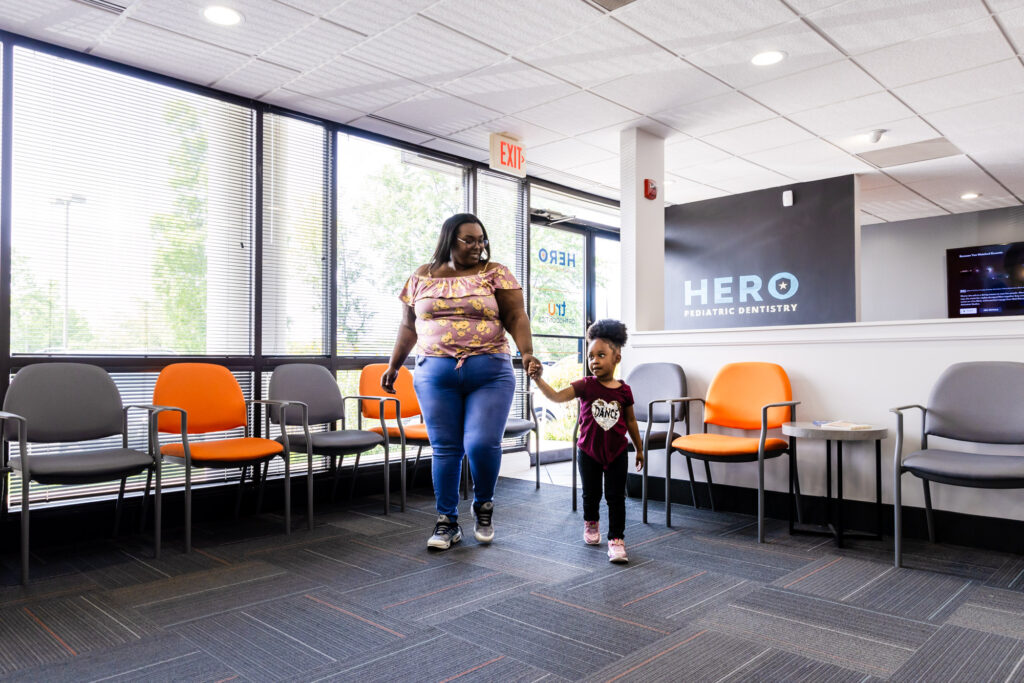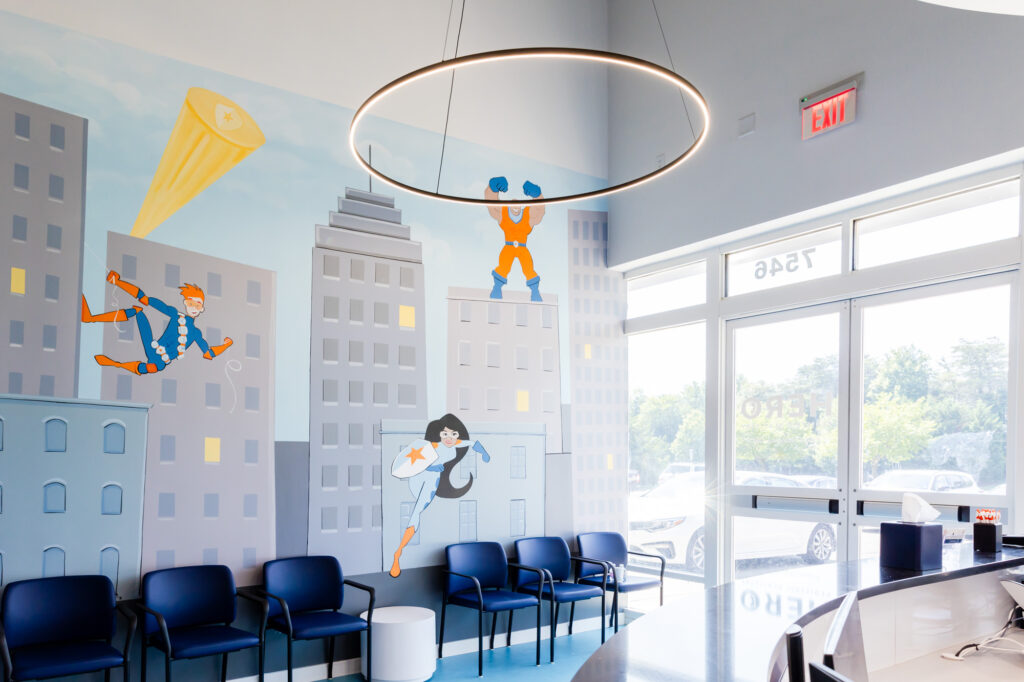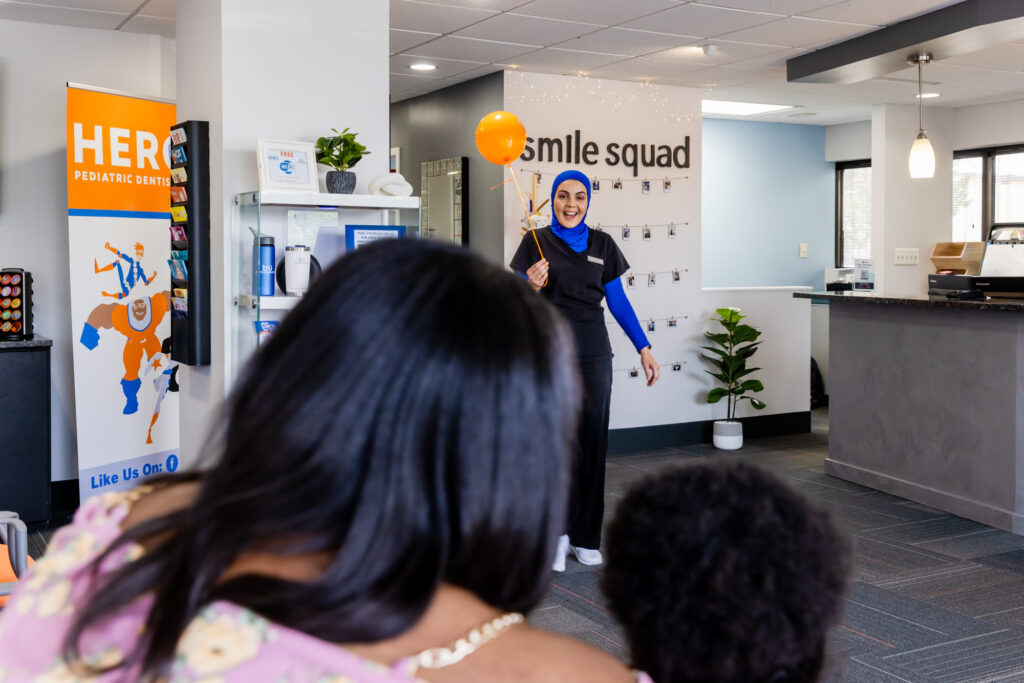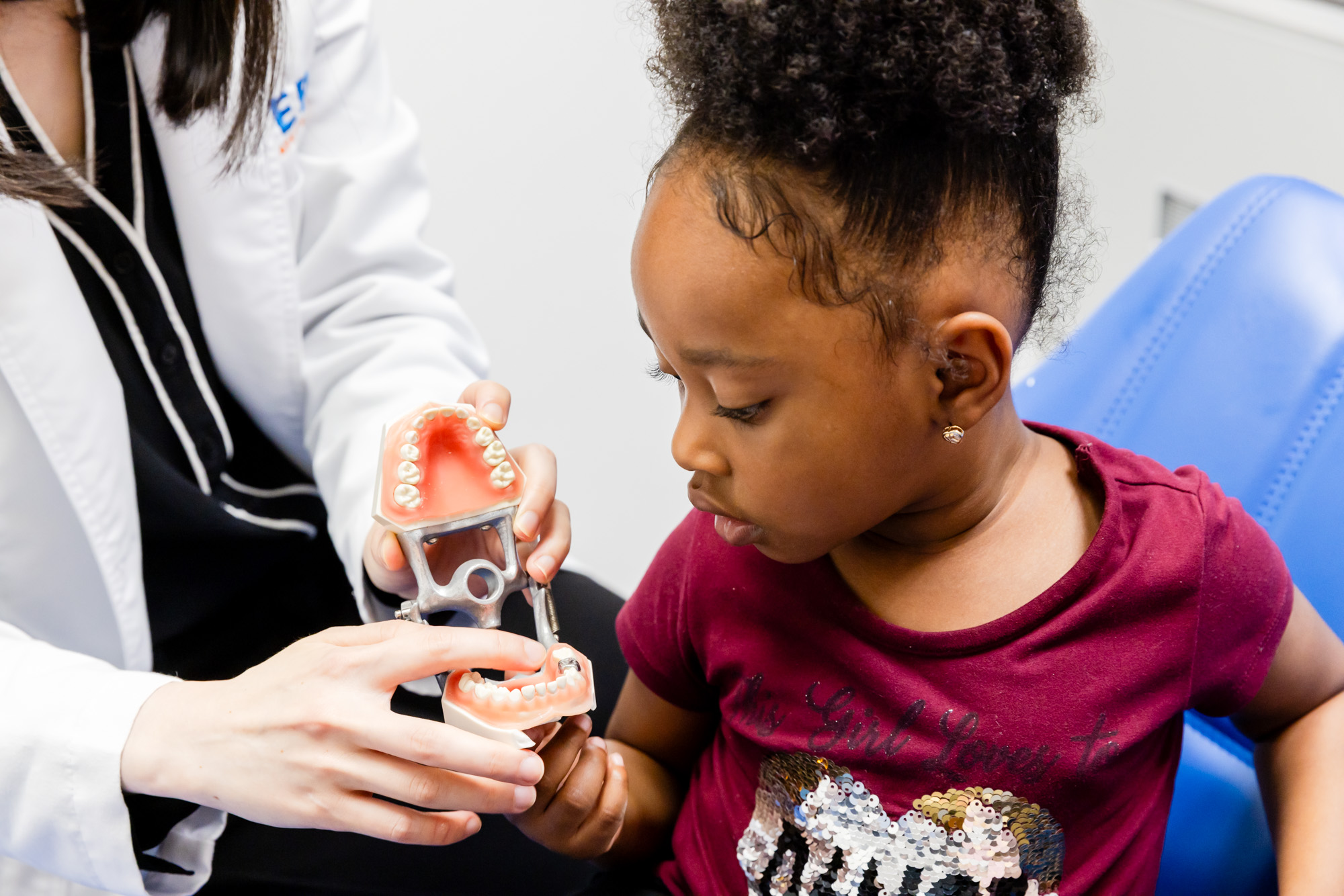If a tooth has been knocked out, preserve the tooth so the dentist can either see the damage or, if it’s a permanent tooth, can actually reattach it if your child receives treatment soon enough. For older children with permanent teeth, they can reinsert the removed tooth into their gum if possible while being taken to the dentist. For younger children, you want to avoid the risk of swallowing their tooth, so drop the tooth into a glass of milk and take it with you to our emergency pediatric dentist in Herndon. By keeping it moist, you have a better chance of reattachment for the tooth.
Emergency Pediatric Dentistry Overview
A dental emergency is a serious injury or situation where the teeth, gums, or mouth may be extremely painful or permanently damaged without prompt treatment. It can result from an acute injury, such as a sports injury when a tooth is knocked out, or a chronic condition that suddenly worsens, such as a decaying tooth that breaks or falls out.
Addresses
A dental emergency can include any of the following:
Severe toothache
Bleeding that won't stop
Bitten lip, cheek, or tongue
A baby tooth being chipped, fractured, or knocked out, particularly prematurely
A permanent tooth being chipped, fractured, or knocked out
Common Pediatric Dentistry Emergencies
With their boundless energy and adventurous spirits, children are often more prone to accidents than adults. This can sometimes lead to dental emergencies requiring prompt attention to prevent long-term issues. The most common pediatric dental emergencies include:
- Toothaches: Often caused by food lodged between teeth, tooth decay, or trauma, toothaches can be quite painful. Gentle cleaning and rinsing the area may provide temporary relief, but a dental visit is necessary to address the underlying cause.
- Chipped or Broken Teeth: Common in falls or sports accidents, chipped or broken teeth need immediate care. Saving any broken tooth fragments and visiting Hero Pediatric Dentistry ASAP is crucial for the best outcome.
- Knocked-Out Teeth: This is a critical dental emergency. If a permanent tooth is knocked out, handling it by the crown (not the root), rinsing it without scrubbing, and attempting to reinsert it into the socket is advised. If this isn’t possible, keeping the tooth moist (e.g., in milk) and getting to us immediately is key.
- Loose Teeth: Injuries can cause teeth to become loose. This is particularly concerning for permanent teeth, as it can lead to tooth loss or damage to the surrounding teeth and gum tissue.
- Dental Abscesses: These are infections that occur at the tooth’s root or in the spaces between the teeth and gums. An abscess can be serious and may require immediate care to relieve pain and treat the infection.

What to Expect
Depending on the situation, we may provide preliminary instructions over the phone to help you manage the situation. Once you arrive, our emergency pediatric dentist on duty will take your child in and perform any exams or X-rays, if needed. From our findings, we’ll determine the best course of action and perform treatment for optimal recovery.
Once the problem has been taken care of, we will discuss aftercare instructions with you and your child and will likely schedule a follow-up appointment to monitor healing.

Trusted Experts for Dental Emergencies
Skilled Staff
Our dentists are trained in emergency pediatric dentistry and have years of experience working with children.
Swift Treatment
We act quickly and safely to get your child the treatment they need to return to great health.
Compassionate Care
In the middle of an emergency situation, we do everything in our power to keep you and your child safe and comfortable.
Frequently Asked Questions About Dental Emergencies
Even though your child loses baby teeth eventually, if a baby tooth is knocked out before it’s ready, it can cause serious problems with overcrowding and alignment when their permanent teeth grow in. If a baby tooth was mostly loose and falls out with a mild bump, it’s not cause for concern. If the tooth still had months or years before it was ready to fall out, you should see the dentist as soon as possible.
Healthy teeth don’t ache, and your child having severe pain means that there’s a problem with their teeth. In addition to throbbing in their tooth, if they’re experiencing facial swelling or red gums, they may have an abscessed tooth. An abscessed tooth is caused by a bacterial infection that creates a pocket of pus. It may be extremely painful, and it is a serious infection that may spread to other parts of the jaw, so it should be seen as soon as possible.
Rinse your child’s mouth with warm water and apply a cold compress to reduce swelling. If you can find the broken tooth fragment, bring it with you to the dentist. Visit the dentist immediately, especially if there’s pain or bleeding.
Clean the area of the affected tooth thoroughly. Rinse the mouth with warm salt water and use a cold compress to reduce any swelling. Avoid putting heat or aspirin on the aching area. Call your emergency pediatric dentist at Hero Pediatric Dentistry for an appointment.
Clean the area gently with water and use a cold compress to reduce swelling and bleeding. If the bleeding is severe or doesn’t stop after a short time, seek emergency dental care or go to the emergency room.
Bring any relevant dental records or medical history of your child. If there’s a knocked-out or broken tooth, bring the tooth or fragments, if available. Stay calm to help keep your child calm and reassured.
Not always, but there are some things you can do to reduce the risk! Encouraging your child to wear a mouthguard during sports, supervising younger children during play, and maintaining regular dental check-ups can all go a long way in preventing dental emergencies.
The ability to save a loose tooth after an injury largely depends on various factors:
- Severity of the Injury: If the tooth is only slightly loose, there’s a good chance it can be saved. The dentist may stabilize the tooth with a splint to allow the ligaments to heal. However, the situation becomes more complex if the tooth is severely loose or displaced. The tooth may require repositioning, stabilization, and, potentially, root canal treatment.
- Primary vs. Permanent Teeth: The approach to saving a loose tooth differs between primary and permanent teeth. For primary teeth, the goal is often to avoid damage to the developing permanent teeth. If a primary tooth is very loose, a dentist might decide to remove it to prevent it from being swallowed or inhaled. In contrast, saving a loose permanent tooth is generally more of a priority, and dentists will make greater efforts to save it.
- Immediate Care: Before reaching the dentist, you can take some steps to help. Instruct your child not to touch or wiggle the tooth. If there’s pain or swelling, a cold compress applied to the cheek can provide relief. Avoid giving your child hard or chewy foods that might exacerbate tooth looseness.

Get Connected With the Expert Emergency Pediatric Dentist in Herndon
Emergency dentistry is just one of our many services to treat kids’ dental issues.












